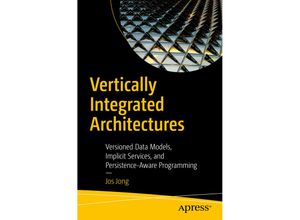Understand how and why the separation between layers and tiers in service-oriented
architectures holds software developers back from being truly productive and how you can
remedy that problem. Strong processes and development tools can help developers write more
complex software but large amounts of code can still be directly deduced from the underlying
database model hampering developer productivity. In a world with a shortage of developers
this is bad news. More code also increases maintenance costs and the risk of bugs meaning less
time is spent improving the quality of systems. You will learn that by making relationships
first-class citizens within an item relationship model you can develop an extremely compact
query language inspired by natural language. You will also learn how this model can serve as
both a database schema and an object model upon which to build business logic. Implicit
services free you from writing code for standard read write operations while still supporting
fine-grained authorization. Vertically Integrated Architectures explains how functional schema
mappings can solve database migrations and service versioning at the same time and how all
this can support any client from free-format to fully vertically integrated types. Unleash the
potential and use VIA to drastically increase developer productivity and quality. What You'll
Learn See how the separation between application server and database in a SOA-based
architecture might be justifiable from a historical perspective but can also hold us back
Examine how the vertical integration of application logic and database functionality can
drastically increase developer productivity and quality Review why application developers only
need to write pure business logic if an architecture takes care of basic read write
client-server communication and data persistence Understand why a set-oriented and
persistence-aware programming language would not only make it easier to build applications but
would also enable the fully optimized execution of incoming service requests Who This Book Is
For Software architects senior software developers computer science professionals and
students and the open source community.



